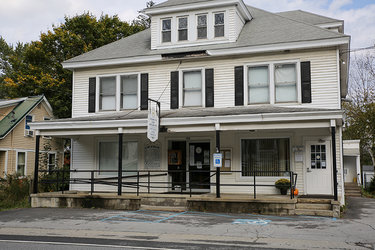Berne government a mystery in new year without town board
BERNE — Still without a quorum on its town board, it is unclear how or whether Berne is expected to conduct the reorganizational meeting that local governments typically hold at the beginning of every year.
Normally, this meeting is where a town board will make annual appointments, name an official bank and newspaper, adopt a wage schedule, establish paid holidays, authorize the supervisor to pay bills, enter into various contracts, and so on.
Supervisor Dennis Palow could not be reached by The Enterprise for information on what the town is doing in light of the fact that, with only two members remaining on its town board after the other three resigned in August, the board can’t pass any of these motions.
Over more than five months, the governor has not made a town board appointment or called a special election, as outlined in the state’s Public Officers Law.
The New York State Department of State declined to answer an Enterprise inquiry about what the town is expected to do in this situation, but has, in the past, typically said that all such questions must be addressed to town officials.
Legal Director of the Government Law Center at Albany Law School Richard Rifkin told The Enterprise this week that he was not aware of any town in New York state that’s faced this circumstance before, and was unsure what the protocol would be. All he could offer was his speculation, he said.
“Your choice seems to be either the government totally shutting down, or, as a practical matter, continuing to operate in the way it has operated in the past,” he said.
That would mean maintaining all of the “fundamentals,” Rifkin said, naming payroll as “the kind of thing that just has to be done if the government is going to function rather than shut down completely.”
He suggested that the state’s reluctance to get involved may stem from the fact that “they don’t want to be seen as governing the town and making the decisions that should be made by local officials.”
But, Rifkin said, “I have no idea what’s going on here and why they’re not reconstituting the board,” referring to Governor Kathy Hochul’s ability to make an appointment to the board that would allow it to conduct normal business again.
All five of the Berne Town Board members, including the three who resigned, had been elected on the Republican ticket. Supervisor Palow told The Enterprise earlier that his recommendation to the governor’s office for a replacement had not been acted upon. He had wanted Anita Clayton, a Democrat who had been elected to the town board on the GOP line, to be appointed.
The Berne Democratic Committee had submitted the name of lawyer Melanie LaCour, a Democrat, among others. A spokesperson for the governor’s office declined to confirm in December if LaCour would be appointed, saying only that the “administration has had conversations with multiple stakeholders in an attempt to resolve this issue as quickly as possible and is actively taking steps to ensure the Town of Berne will have a functioning government in the New Year.”
The governor’s office also continues to delay a Freedom of Information Law request The Enterprise submitted months ago for correspondence between state and town officials regarding the crisis, with the latest return date scheduled for February.
Former Democratic Committee Chairman Jeff Marden told The Enterprise on Jan. 8 that the committee had “heard nothing official from the governor’s official yet,” but expected an update shortly.



